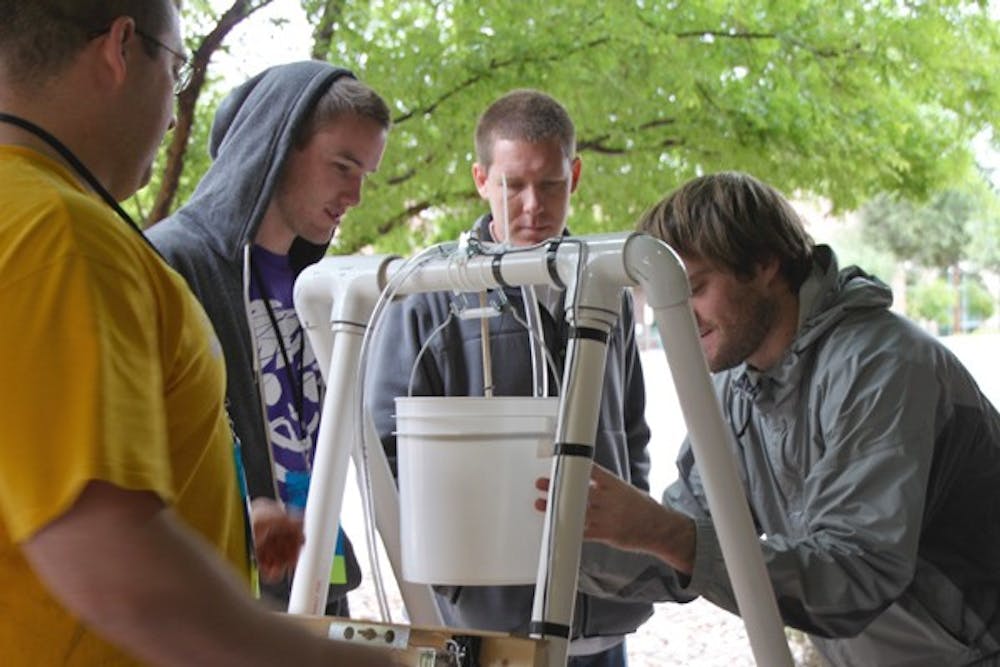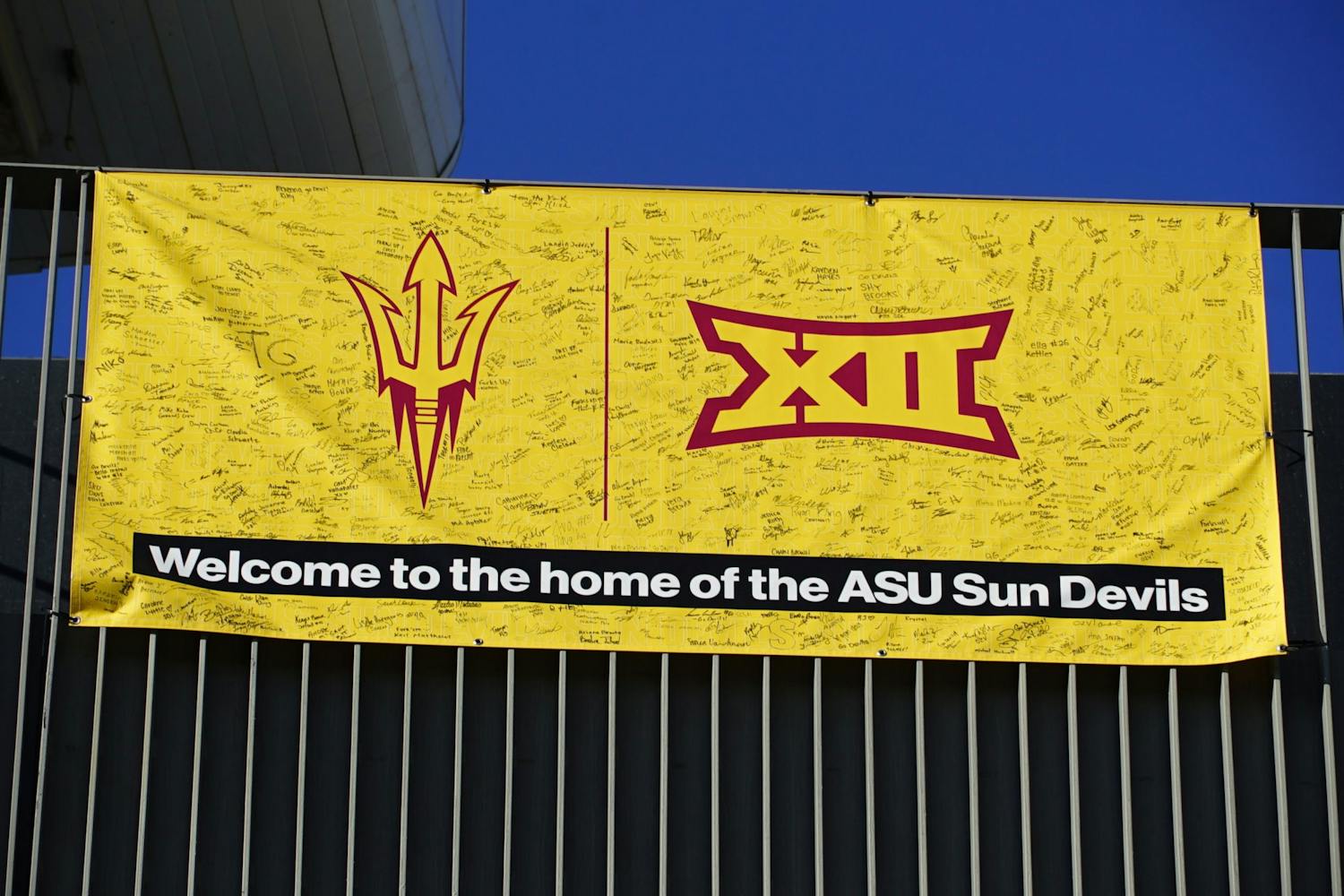Thirty-four ASU students used their technology and problem-solving skills to compete for scholarship money and recognition at the sixth annual Avnet Tech Games on Saturday.
Ten of the ASU students won $1,000 each at the technology competition produced by Avnet, Inc., a Fortune 500 electronics distribution company with headquarters in Phoenix. Students will use the prize money for tuition, continuing education or training.
The Avnet Tech Games competition has nine different technology-related “games” that students can participate in, including robot races and creating a solar-powered water pumping system.
About 175 student competitors from colleges and universities around Arizona contended for first-place finishes at the games, held at the University of Advancing Technology in Tempe. Three ASU student teams managed to win out of nine total events, which was more than any other school.
Last year, only one ASU team won a game and 19 students competed.
Tyler Fleetham, a materials science graduate student at ASU, helped his team of four students build a solar-powered water pumping system in the new “Solar Scrimmage” game.
Because of the rainy weather, batteries were used instead of solar panels.
“It’s testing my skills,” Fleetham said. “It’s skills that I already know, but it’s just applying them to a different kind of problem.”
He said he didn’t do any special preparation for the game, and his team ended up winning first place.
“I think our design really came out well,” Fleetham said. “It was significantly better than some of the other groups because a lot of the other groups, they couldn’t … get the water pump to stop, and so they would overflow.”
He said their pump was hooked up correctly, and they had extra features.
“We all work in an engineering lab together, so we have a lot of experience with fixing equipment, with designing circuits, with building things on a daily basis,” Fleetham said. “So I think we had an edge over most of these community college groups, because they’re coming from classes and not necessarily having any experience building things, whereas that’s what we do every day.”
Fleetham will use his $1,000 to cover educational expenses his current scholarship can’t.
Electrical engineering senior Tania Lyon participated in the “Robot Race” game. The game required her team to build a robot out of Legos and program it within five hours so it could get through two different mazes.
She competed in this game in order to get a different type of experience outside the classroom.
“I have a 9-year-old sister and she loves robotics, so I figured that this would be a way to … be a role model for her,” Lyon said.
She wanted her sister to see that women can work with robots and technology along with men.
Her team is the first all-female team to compete for ASU at Avnet Tech Games.
“It’s exciting, but at the same time it’s a little discouraging to see that not many women come and do this, that they feel like they can’t do this,” Lyon said. “There’s still that sense that men are supposed to be in these fields, and girls are not encouraged to follow these careers.”
Although her team didn’t win, she appreciated the experience and the strong faculty support system.
Each team had one faculty adviser who also earned money for helping the student teams and extra for winning.
One participant in the “Robot Race” game stood out from the rest because of his age.
Jackson Benedict, an 8-year-old taking a computer-aided drafting and design class at Central Arizona College, is surprisingly not the first 8-year-old to compete.
Last year, Vincent Moore entered the competition with students from Mesa Community College.
“I just thought it’d be fun,” Benedict said.
Teri Radosevich, spokeswoman for Avnet, said producing the games not only helps her company but also the students involved.
“Our ultimate goal in creating Avnet Tech Games is to create a more qualified workforce for the high-tech community to draw from,” Radosevich said. “What we hope is happening here is that these students are learning real-world experiences and getting opportunities to meet people and to learn things that [are] going to help them be more successful on the job.”
The games were created with input from faculty from colleges and universities, and sometimes curriculum changes in college courses as a result of the games, she said.
“We want them to gain something that they’re not already getting in a classroom,” Radosevich said. “But on the flip side, we also need to make sure that we’re not giving them something that’s completely outside of their realm of their possibilities of doing.”
Avnet has hired some of the students who competed in the games. Three students were hired after last year’s competition.
“If these students can come to us with better skills and with real-world experiences, then they make better employees,” Radosevich said.
Reach the reporter at reweaver@asu.edu





